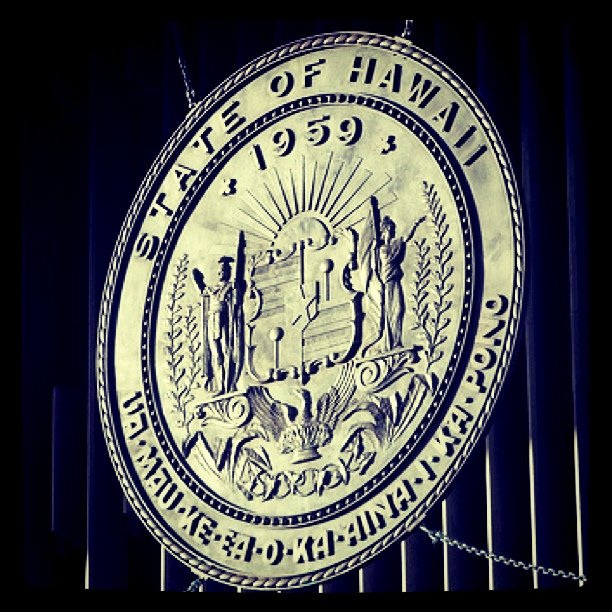There is a tendency among state legislatures with short annual sessions, to pass a glut of questionable bills right before they adjourn for the year. Â This is similar to the human instinct to try to camouflage embarrassing or problematic revelations by mixing them with many other questionable items in the hopes that they will somehow escape notice. Â In other words, this is why, when people go the store to buy laxatives, they throw in a bottle of liquor and a box of hygiene products at the same time. Â It doesn’t stand out so much that way.
Yes, I did just compare the Legislature to a man making an embarrassing pharmacy purchase. Â And I’ll stand by that. Â Because it works. Â Think about it–what have you been hearing in the last few days about the Hawaii Legislature? Â Lots of debate about various controversial tax and finance issues, some criticism over the failure to adequately deal with some pressing state issues, and a general clamor over the frantic last days. Â It’s easy to lose track of individual items in that noisy mix. Â Even when they’re as significant as the next step towards the creation of a Native Hawaiian government.
In case you missed it, the state House and Senate both approved the measure that would begin the creation of a roll of “qualified Native Hawaiians” interested in participating in the formation of a Native Hawaiian government. Â This is (and has always been) a transparent effort to push for Congressional action on the Akaka Bill. Â After all, if you can perpetuate the idea that the Bill has the full support of the State, which has already initiated the beginning steps towards tribal organization, then you’ve made the passage through Congress a little easier. Â (In case you’re wondering, a five-person commission will have the responsibility of creating the roll of “qualified Native Hawaiians.”)
What is this truly the beginning of? Â That’s a little harder to determine without the help of a crystal ball. Â It’s interesting to note that despite all of the money that has been spent in trying to push for the Akaka Bill (in contrast to the woefully underfunded opposition), the majority of Hawaii’s citizens still harbor serious reservations about the Bill. Â And one can’t help but wonder whether this newly created commission and the effort to produce a roll of “qualified Native Hawaiians” will not be the panacea that Akaka Bill supporters hope for. Â It’s possible that the Native Hawaiian community might have serious questions about how one is determined to be “qualified” to participate. Â It’s possible (probable even) that we’ll see a lawsuit or two about it. Â And who knows how the process will affect the thinking of the rest of Hawaii’s citizens on the questions of reorganization itself? Â The only thing that we can know for sure is that the push to pass the Akaka Bill will continue to gain steam, and those who hope for a public debate on the issue need to continue to remain active and involved.


